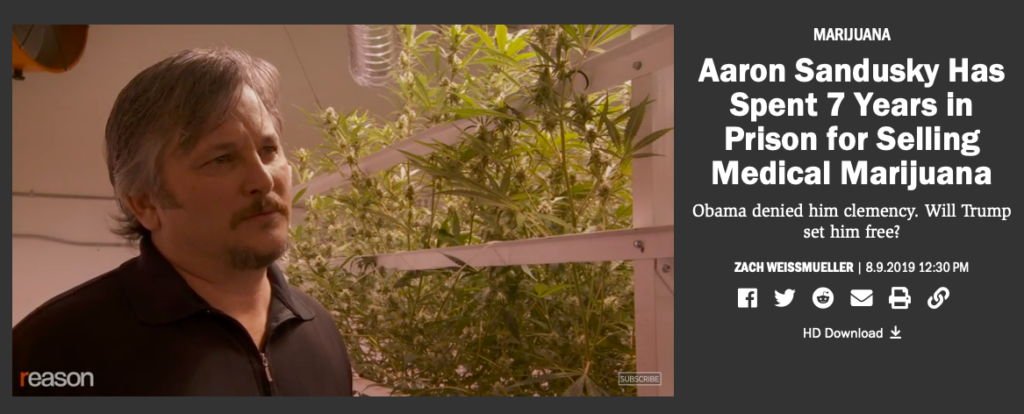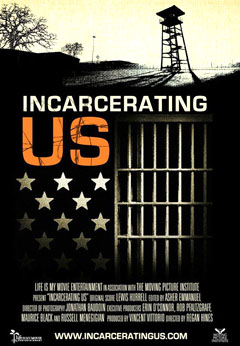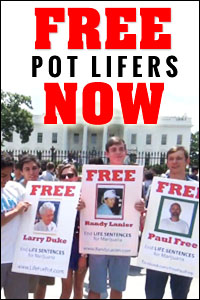
When Sandusky opened a marijuana dispensary in 2009, medical cannabis had been legal for 13 years in California. But in 2011, the feds carried out a series of federal raids on medical marijuana clinics in California, despite earlier assurances from President Barack Obama and his attorney general that they wouldn’t target operators that were legal under state law.
Sandusky had located his operation in the town of Upland, one of a handful of municipalities that was attempting to use the zoning code to keep the industry away. Sandusky alleges that in 2011 the then-mayor, John Pomierski, demanded a $20,000 bribe to allow him to continue operating.
Sandusky ended up cooperating with the FBI, which later arrested and charged Pomierski with bribery and extortion.
After Pomierski was indicted, Upland continued the fight to force Sandusky to close his dispensary. So he sued in state court and won.
But cannabis is still a schedule one narcotic. According to Sandusky, city officials retaliated by sending a formal request to the U.S. attorney to shut down his operations. On November 1, 2011, federal agents raided Sandusky’s businesses.
The federal government charged him with six counts of drug trafficking. Sandusky’s employees all took plea deals. His business partner testified against him in return for a lighter sentence.
Sandusky declined a plea deal offer that would have turned him into an informant.
“I said, ‘I’m not going to go set people up so these guys can take them down,'” says Sandusky. “These people are following state law.”
Sandusky’s attorney was planning to argue entrapment on the grounds that the Obama administration had publicly stated that it wouldn’t prosecute marijuana operators. The judge prohibited that line of defense, and Sandusky was convicted and sentenced to the mandatory minimum of 10 years in prison. During sentencing, Judge Percy Anderson accused him of having lost his “way about what’s right and what’s wrong.”
“Aaron, maybe more than anyone, should receive clemency because his case is so disturbing,” says Amy Povah.
Povah did nine years in prison on a drug charge before receiving clemency from Bill Clinton in 2000. Now she runs the the nonprofit CAN-DO Foundation, which seeks clemency for all nonviolent drug offenders. Sandusky is one of 22 “pot prisoners” who CAN-DO is currently working to free. Go here to read the entire article on Reveal.














